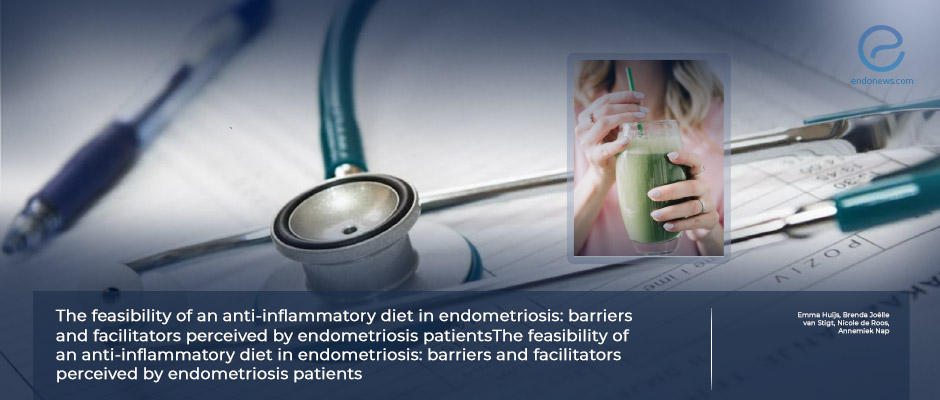Anti-inflammatory Diet Feasible in Patients With Endometriosis
Dec 16, 2024
The study provides insight into the barriers and facilitators to adhere to an anti-inflammatory diet from the point of view of patients with endometriosis.
Key Points
Highlights:
- An anti-inflammatory diet is feasible in patients with endometriosis.
Importance:
- Identifying barriers and facilitators can help patients adhere to an anti-inflammation diet, which could help alleviate their symptoms.
What’s done here:
- Researchers conducted semi-structured focus groups and individual interviews with 23 patients with endometriosis.
Key results:
The main barriers to adhering to an anti-inflammatory diet were:
- Eating with others
- Disbelief in one’s capability about specific dietary guidelines
- Concerns about taste, lack of knowledge on how to follow the diet
- Lack of noticeable beneficial effect
- Lack of intention to follow the diet to the full extent
The main facilitators of adhering to an anti-inflammatory diet were:
- Receiving social support
- General confidence in one’s capabilities
- Knowing how and why to follow the diet
- Noticing the beneficial effects of the diet
- Belief that the diet would reduce the symptoms of endometriosis
Limitations:
- The sample size is quite small with just 23 participants.
- The composition of the participants might not be representative of all patients with endometriosis.
- Patients who took part in the study had self-reported endometriosis and did not have a confirmed diagnosis.
Lay Summary
An anti-inflammatory diet is feasible in patients with endometriosis, according to a new study published in the journal Reproductive BioMedicine Online. This is the case especially when identified barriers and facilitators are addressed in an intervention.
“ Provision of knowledge, stimulating social support, and enhancing self-efficacy should be emphasized,” the authors of the study said.
To analyze the feasibility of an inflammatory diet in patients with endometriosis, a team of researchers led by Dr. Annemiek Nap from the Department of Gynaecology and Obstetrics, Radboud University Medical Center in Nijmegen, the Netherlands conducted a qualitative study using semi-structured focus groups and individual interviews in 23 patients with endometriosis, median age 33.
The researchers then thematically analyzed the transcripts of the focus groups and interviews to identify and structure the ideas and views of the responders.
This way, the researchers identified several perceived barriers as well as facilitators to adhering to an anti-inflammatory diet.
According to this, the main barriers to adhering to an anti-inflammatory diet were eating with other people, not believing in one’s capability about specific dietary guidelines, concerns about the taste of such foods, lack of knowledge on how to follow the diet, lack of noticeable beneficial effect, and lack of intention to follow the diet to the full extent.
The main facilitators of adhering to the diet were receiving social support, general confidence in one’s own capabilities, knowing how and why to follow the diet, noticing the beneficial effects of the diet, and belief that the diet would reduce the symptoms of endometriosis.
“Our results indicate that most emphasis should be placed on providing knowledge in multiple areas, stimulating social support and enhancing motivation by increasing self-efficacy,” the researchers concluded.
Research Source: https://pubmed.ncbi.nlm.nih.gov/38181648/
anti-inflammatory diet symptoms of endometriosis nutrition

